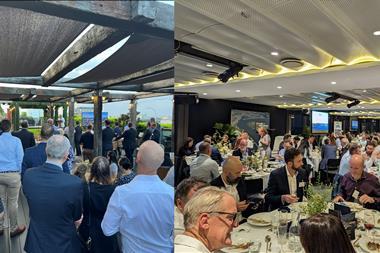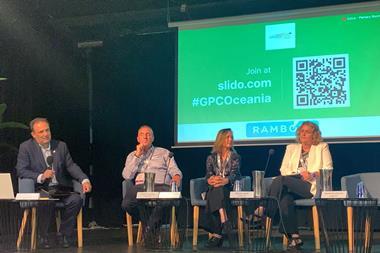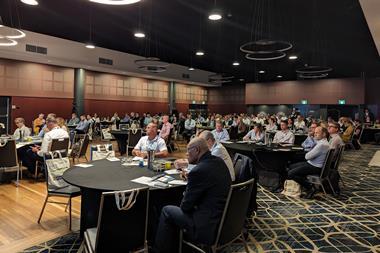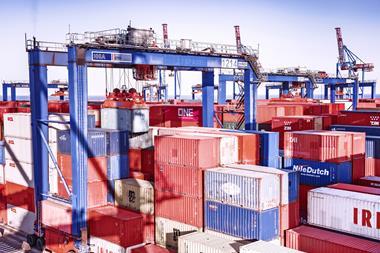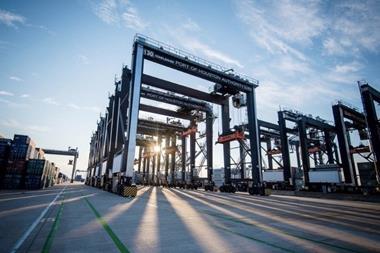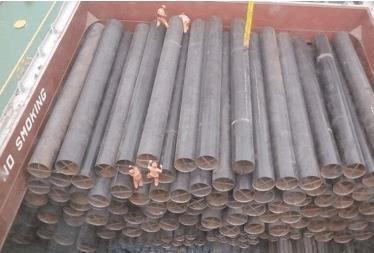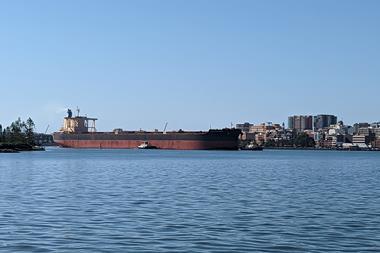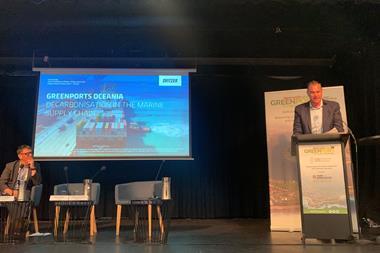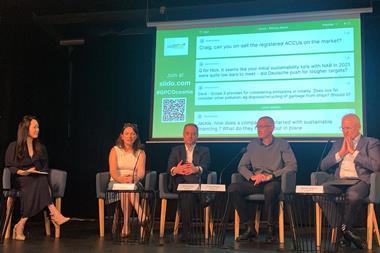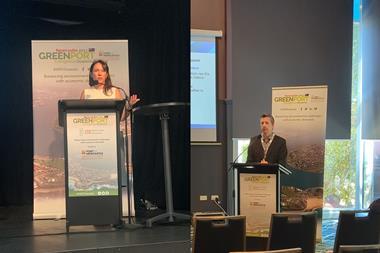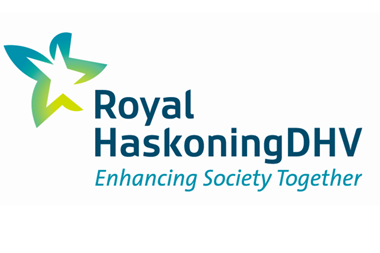The first GreenPort Congress to be held in the Southern Hemisphere commenced today in the Australian east coast city of Newcastle.
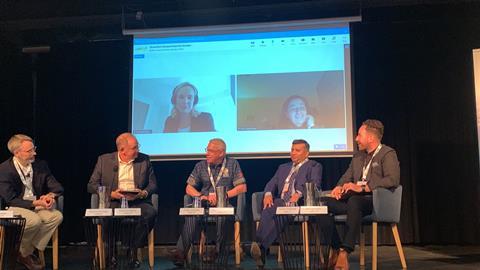
Delegates heard from a range of presenters on topics including renewable energy, climate change risks, the role of communities and sustainability in cruise shipping.
The opening panel session canvassed views from port operators, shipping lines and freight forwarders, including insights from two small island developing states. While there was discussion around innovation, collaboration and drivers for sustainable action, one issue that loomed was uncertainty around what a sustainable future will look like for shipping and ports.
Paula Sengo from the Port of Lisbon said, “We need to understand the way forward because we still face a lot of uncertainty, there are a lot of alternative fuels, there are a lot of new things going on and investment in ports is high. We have to try to see what the future pathway is”.
Other panel members discussed the development of various alternative fuels from green methanol, to ammonia, hydrogen and biofuels.
Maersk’s My Therese Blank said, “We always get that question ‘what is the future fuel?’ because different shipping companies have already invested in different pathways to achieve their decarbonisation targets. Now we are seeing more and more investment into green methanol and that also helps the port community to know where to invest and how to set up the future port infrastructure to enable that”.
While many shipping lines are focused on reducing energy/fuel use and switching to greener fuels, the drivers for sustainability at the port level differ.
For the Port of Newcastle it starts with investors. CEO Craig Carmody said, “Most of our refinancing we’ve done in the last couple of years has been… mainly from transition funds who are only giving us that money because they expect us to deliver on this diversification strategy we’re doing. So it really does start with where the money comes from.”
Ms Sengo noted that while sustainability investments are significant at the port level and core to Lisbon’s business strategy, it can be “an issue” to monetise them as many are not cost effective.
The panel discussion turned to the topic of levelling the playing field for decarbonisation and investment in sustainability.
Ms Blank said there was an opportunity for more to be done at the level of the International Maritime Organization (IMO), specifically “market-based measures to cover the competitiveness gap between the fossil fuels and the green fuels” by 2025. Maersk would also like to see a strengthening of emissions reduction targets. However, Ms Blank said there was a great opportunity for industry to make a difference. “In 2022 there was only 30,000 tonnes of green methanol produced globally. We have signed eight partnerships already to enable 750,000 tonnes to be available in the next two years. By making investments and commitments this will help other parts of industry to do the investment required to accelerate us forward,” she said.
Mr Carmody believes Australia has now re-joined the global community in understanding climate change is real and the need to take action. He said if industry does not get its “act together” around climate change action, then governments will come in and “make the decision for us”. He also commended the work of the IMO but said creating level playing field for decarbonisation needed to be based on scientific targets. “It’s not for people to come up with their own idea of what success looks like. It has to be science-based, target-based, it has to tie in with international targets that have been agreed to.
“Those of us in the first world… are going to have to do some of the heavy lifting. The truth is, if we are going to do this we’re all going to have to pull ourselves up and some of us are more capable based on our wealth, to do that,” he said.
This was a sentiment mirrored by PNG Ports and the Solomon Islands Port Authority.
“We will follow the guidelines of the IMO as a guide only. It’s what we can manage within the resources we have,” said Rodney Begley, acting CEO of PNG Ports.
The organisation has “conflicting challenges” in meeting the needs of the community in a country with 95% unemployment and limited education, and the demands of the government as a state-owned enterprise.
“Sustainability is a blessing and a curse and how we manage that,” Mr Begley said.
He said sustainable action is currently focused on “low hanging fruit” and factors over which the port has control such as efficiency of vessel unloading, truck turnaround times and shore-based power.
Eranda Kotelawala, CEO of Solomon Islands Ports Authority said, “We need support… around 80% of infrastructure in Pacific ports is more than 50-60 years old. We do a lot to mitigate climate change from our perspective, but probably not enough. We look globally at what ports are doing and we try to learn from them,” he said.

